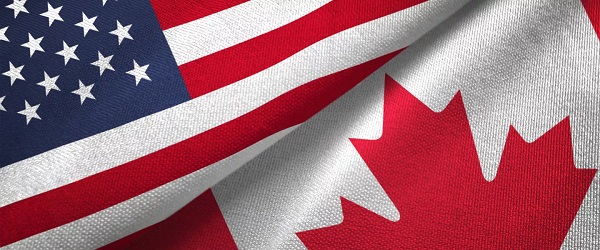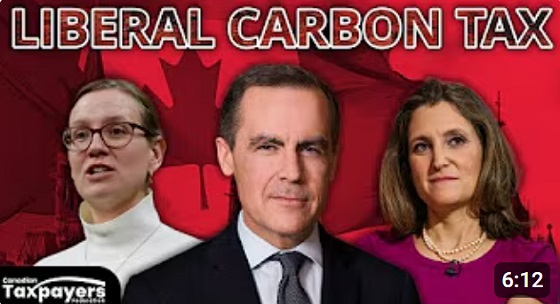Business
Our energy policies have made us more vulnerable to Trump’s tariffs

From the Fraser Institute
By Elmira Aliakbari and Jason Clemens
As Donald Trump, who will be sworn in as president on Monday, threatens to impose tariffs on Canadian exports including oil and natural gas, the calls from some Canadian politicians and analysts for greater energy trade diversification grow louder. However, these calls highlight a hard truth—Canada has repeatedly foregone opportunities to reduce our dependence on the United States by cancelling already approved pipelines and failing to approve new pipeline and LNG projects that could have increased our access to global markets.
The U.S. is not just Canada’s largest energy customer—it’s nearly our only customer. In 2023, 97 per cent of crude oil exports and virtually all natural gas exports were sent south of the border. This dependence on the U.S. for exports leaves Canadian producers and the Canadian economy exposed to policy shifts in Washington and even state capitals.
Consider Energy East, a pipeline proposed by TransCanada (now TC Energy) to transport oil from Alberta and Saskatchewan to refineries and export terminals in Atlantic Canada. The pipeline would have reduced Atlantic Canada’s reliance on imported oil and opened export markets for Canadian oil to Europe.
However, in 2017 the Trudeau government introduced new criteria for evaluating and approving major pipeline projects, and for the first time assessments included not only the greenhouse gas (GHG) emissions from constructing the pipeline but also emissions from producing and using the oil it would transport. Later that year, TransCanada suspended its application for the project, effectively cancelling it. The CEO of TransCanada blamed “changed circumstances” but many observers recognized it was a combination of the new regulations and opposition from Quebec, particularly the City of Montreal. Consequently, the refineries in Atlantic Canada continue to rely on imported oil.
A year earlier in 2016, the Trudeau government cancelled the already-approved Northern Gateway pipeline, which would have connected Alberta oil production with the west coast and created significant export opportunities to Asian markets.
Canada is even more dependent on the U.S. for natural gas exports than oil exports. In 2023, Canada exported approximately 84 billion cubic metres of natural gas—all to the U.S.—via 39 pipelines, again leaving producers in Canada vulnerable to U.S. policy changes.
Meanwhile, Canada currently has no operational infrastructure for exporting liquified natural gas (LNG). While LNG Canada, the country’s first LNG export terminal, is expected to become operational this year in British Columbia, it’s long overdue.
Indeed, several energy companies have cancelled or delayed high-profile LNG projects in Canada due largely to onerous regulations that make approvals uncertain or even unlikely, including the $36 billion Pacific NorthWest LNG project in 2017, the $9 billion Énergie Saguenay LNG project in 2020, Kitimat LNG in 2021 and East Coast Canada LNG in 2023.
This all adds up to a missed opportunity, as global demand for LNG increases. If governments in Canada allowed or even facilitated more development of LNG facilities, Canadian companies could supply high-demand regions such as Asia and Europe. Indeed, during Europe’s 2022 energy crisis, Germany and several other countries turned to Canada for reliable LNG supply, but the Trudeau government rejected the requests.
The contrast with the U.S. is stark. Since 2011, 18 LNG export facilities have been proposed in Canada but only one—LNG Canada Phase 1—is nearing completion, more than 12 years after it was announced. Meanwhile, as of January 2025, the U.S. has built eight LNG export terminals and approved 20 more, securing its position as a global LNG leader.
Years of inaction and regulatory roadblocks have left Canadian energy producers overly dependent on a single trading partner and vulnerable to shifting U.S. policies. The looming threat of tariffs should be a wake-up call. To secure its energy future, Canada must address the regulatory barriers that have long hindered progress and prioritize the development of infrastructure to connect our energy resources to global markets.
2025 Federal Election
MEI-Ipsos poll: 56 per cent of Canadians support increasing access to non-governmental healthcare providers

-
Most believe private providers can deliver services faster than government-run hospitals
-
77 per cent of Canadians say their provincial healthcare system is too bureaucratic
Canadians are increasingly in favour of breaking the government monopoly over health care by opening the door to independent providers and cross-border treatments, an MEI-Ipsos poll has revealed.
“Canadians from coast to coast are signalling they want to see more involvement from independent health providers in our health system,” explains Emmanuelle B. Faubert, economist at the MEI. “They understand that universal access doesn’t mean government-run, and that consistent failures to deliver timely care in government hospitals are a feature of the current system.”
Support for independent health care is on the rise, with 56 per cent of respondents in favour of allowing patients to access services provided by independent health entrepreneurs. Only 25 per cent oppose this.
In Quebec, support is especially strong, with 68 per cent endorsing this change.
Favourable views of accessing care through a mixed system are widespread, with three quarters of respondents stating that private entrepreneurs can deliver healthcare services faster than hospitals managed by the government. This is up four percentage points from last year.
Countries like Sweden and France combine universal coverage with independent providers and deliver faster, more accessible care. When informed about how these health systems run, nearly two in three Canadians favour adopting such models.
The poll also finds that 73 per cent of Canadians support allowing patients to receive treatment abroad with provincial coverage, which could help reduce long wait times at home.
Common in the European Union, this “cross-border directive” enabled 450,000 patients to access elective surgeries in 2022, with costs reimbursed as if they had been treated in their home country.
There’s a growing consensus that provincial healthcare systems are overly bureaucratic, with the strongest agreement in Alberta, B.C., and Quebec. The proportion of Canadians holding this view has risen by 16 percentage points since 2020.
Nor do Canadians see more spending as being a solution: over half say the current pace of healthcare spending in their province is unsustainable.
“Governments shouldn’t keep doubling down on what isn’t working. Instead, they should look at what works abroad,” says Ms. Faubert. “Canadians have made it clear they want to shift gears; now it’s up to policymakers to show they’re listening.”
A sample of 1,164 Canadians aged 18 and older was polled between March 24th and March 28th, 2025. The margin of error is ±3.3 percentage points, 19 times out of 20.
The results of the MEI-Ipsos poll are available here.
* * *
The MEI is an independent public policy think tank with offices in Montreal, Ottawa, and Calgary. Through its publications, media appearances, and advisory services to policymakers, the MEI stimulates public policy debate and reforms based on sound economics and entrepreneurship.
2025 Federal Election
POLL: Canadians say industrial carbon tax makes life more expensive

The Canadian Taxpayers Federation released Leger polling showing 70 per cent of Canadians believe businesses pass on most or some of the cost of the industrial carbon tax to consumers. Meanwhile, just nine per cent believe businesses pay most of the cost.
“The poll shows Canadians understand that a carbon tax on business is a carbon tax on Canadians that makes life more expensive,” said Franco Terrazzano, CTF Federal Director. “Only nine per cent of Canadians believe Liberal Leader Mark Carney’s claim that businesses will pay most of the cost of his carbon tax.
“Canadians have a simple question for Carney: How much will your carbon tax cost?”
The federal government currently imposes an industrial carbon tax on oil and gas, steel and fertilizer businesses, among others.
Carney said he would “improve and tighten” the industrial carbon tax and extend the “framework to 2035.” Carney also said that by “changing the carbon tax … We are making the large companies pay for everybody.”
The Leger poll asked Canadians who they think ultimately pays the industrial carbon tax. Results of the poll show:
- 44 per cent say most of the cost is passed on to consumers
- 26 per cent say some of the cost is passed on to consumers
- 9 per cent say businesses pay most of the cost
- 21 per cent don’t know
Among those decided on the issue, 89 per cent of Canadians say businesses pass on most or some of the cost to consumers.
“Carbon taxes on refineries make gas more expensive, carbon taxes on utilities make home heating more expensive and carbon taxes on fertilizer plants increase costs for farmers and that makes groceries more expensive,” Terrazzano said. “A carbon tax on business will push our entrepreneurs to cut production in Canada and increase production south of the border and that means higher prices and fewer jobs for Canadians.”
-

 2025 Federal Election2 days ago
2025 Federal Election2 days agoNo Matter The Winner – My Canada Is Gone
-

 2025 Federal Election2 days ago
2025 Federal Election2 days agoASK YOURSELF! – Can Canada Endure, or Afford the Economic Stagnation of Carney’s Costly Climate Vision?
-

 Alberta2 days ago
Alberta2 days agoMade in Alberta! Province makes it easier to support local products with Buy Local program
-

 Alberta2 days ago
Alberta2 days agoProvince to expand services provided by Alberta Sheriffs: New policing option for municipalities
-

 2025 Federal Election2 days ago
2025 Federal Election2 days agoCSIS Warned Beijing Would Brand Conservatives as Trumpian. Now Carney’s Campaign Is Doing It.
-

 2025 Federal Election2 days ago
2025 Federal Election2 days agoInside Buttongate: How the Liberal Swamp Tried to Smear the Conservative Movement — and Got Exposed
-

 Bruce Dowbiggin1 day ago
Bruce Dowbiggin1 day agoIs HNIC Ready For The Winnipeg Jets To Be Canada’s Heroes?
-

 Dr. Robert Malone1 day ago
Dr. Robert Malone1 day agoThe West Texas Measles Outbreak as a Societal and Political Mirror










